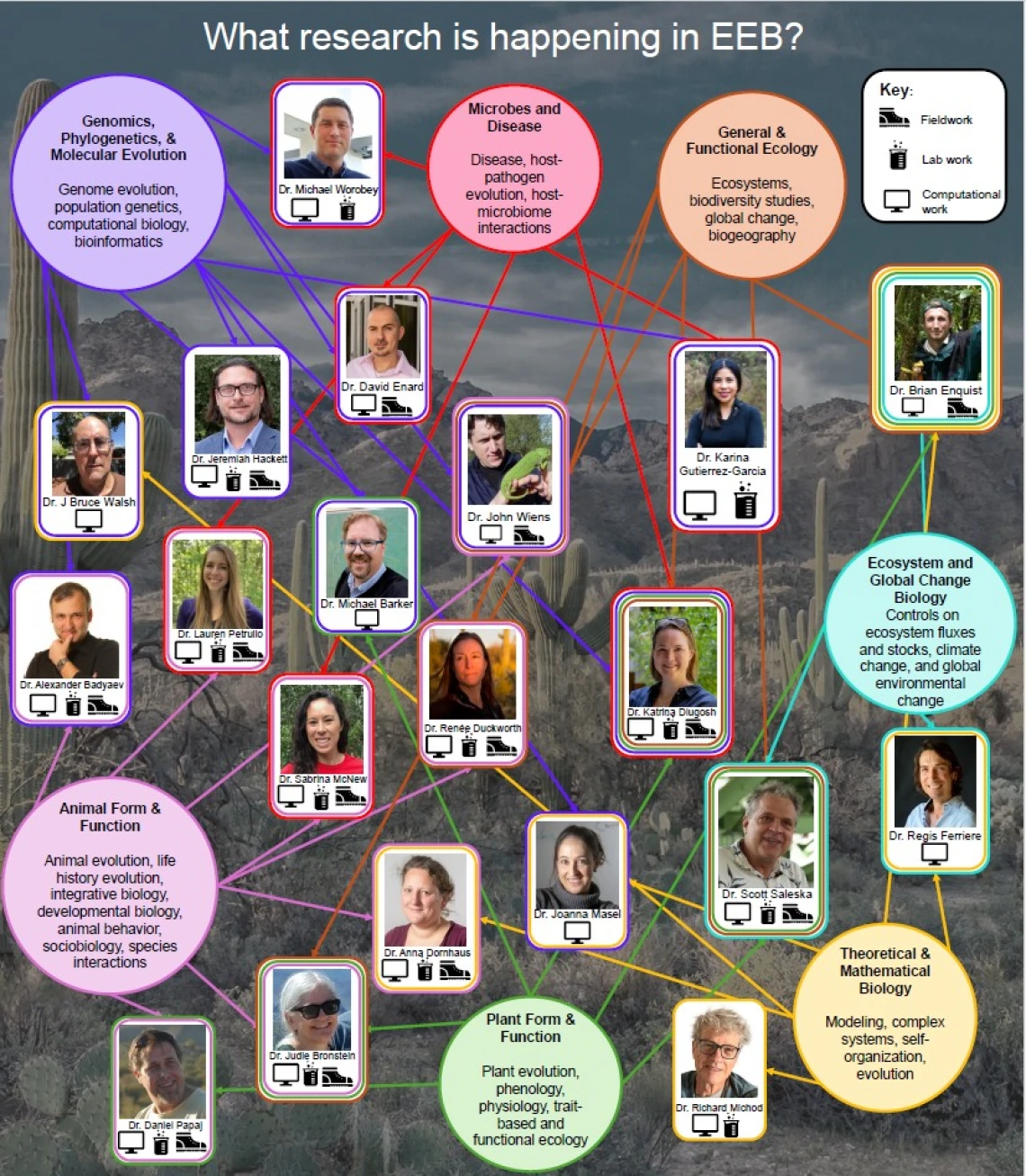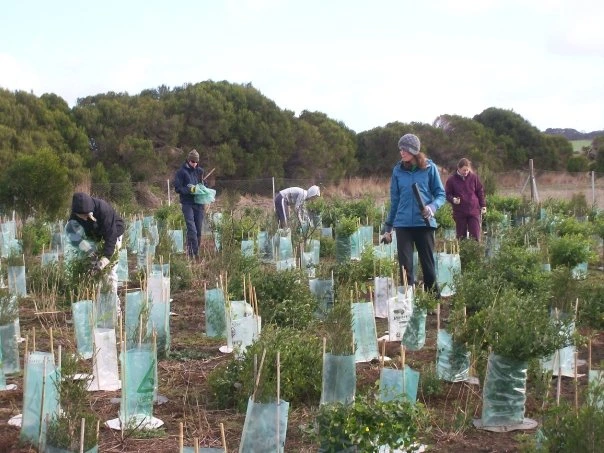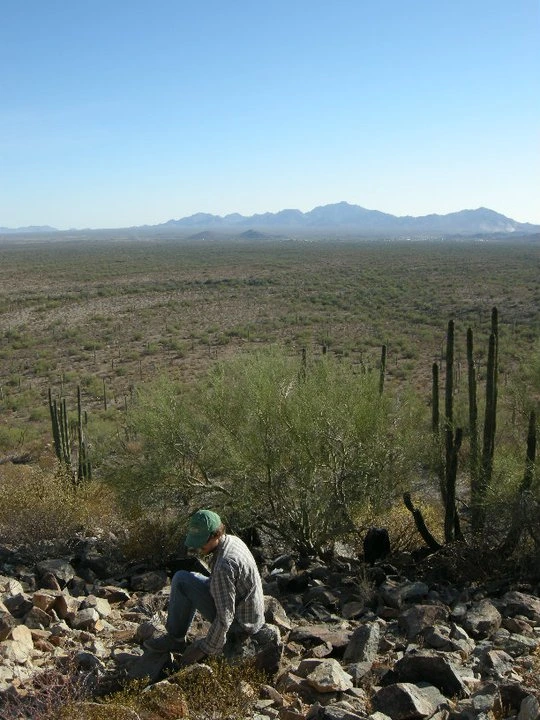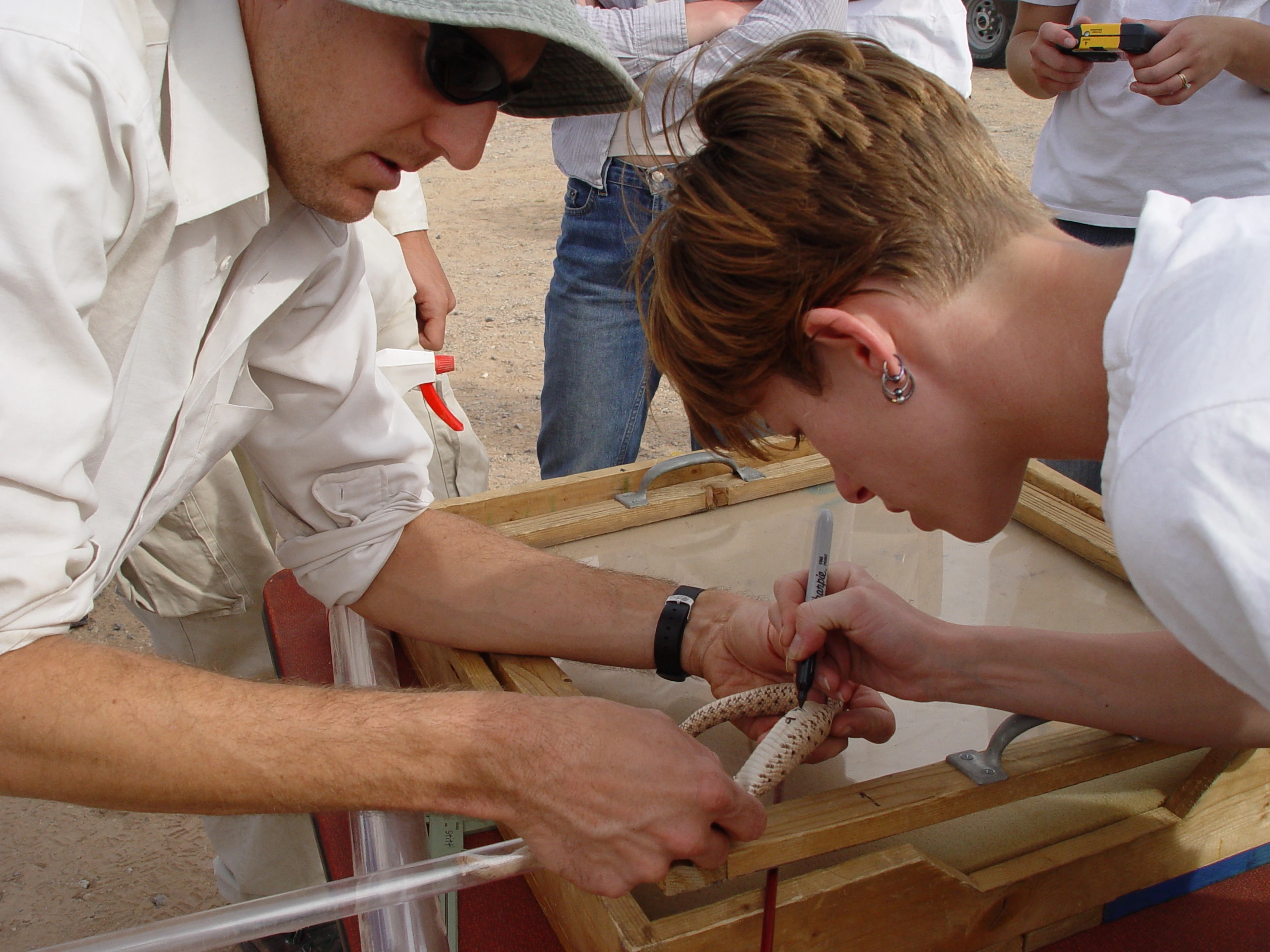UA undergraduate research opportunities are available to students who wish to pursue a faculty mentored, hands-on learning experience beyond the classroom setting. There are a variety of ways students can become involved in research. Some of the undergraduate research programs are quite competitive and have strict eligibility and application requirements whereas other methods of research involvement are not as restrictive. A high GPA or an impressive résumé is not necessarily required to become involved. Most faculty research mentors are interested in working with students who are hard-working, persistent, and dedicated to the project. Being involved in an undergraduate research experience can give a student an opportunity to explore their major discipline more extensively or an opportunity to work in another discipline. Keep in mind, many faculty members require prerequisite coursework; whereas, other faculty will provide training as needed for the research project.
Why do Research?
- Discover what area of science or mathematics truly interests you
- Gain a deeper understanding of science through hands-on experience
- Learn valuable skills to help you in your field of study
- Build an impressive research resume´
- Develop close relationships with faculty and students who share your interests
- Become an expert on your research topic
- Develop teamwork, problem-solving, and communication skills
- Explore possible careers and receive mentoring about how to achieve your career goals
Find out more about maximizing your research experience on the COS Undergraduate Research page. Undergraduate research involves commitment from both you and your faculty mentor. What you gain from this experience ultimately depends on your work and dedication to the project.
Finding Research
There are two great ways to find research opportunities on campus at the UA:
- Apply for a formal research program: You can find formal research opportunities on the College of Science Undergraduate Research website or the University of Arizona student research page. We also send them out frequently through the EEB Undergraduate email listserv.
- Contact a faculty member: You can find faculty members on campus who need undergraduate students to help in their labs. This College of Science Getting Started Guide is very helpful here. Some great ways to find faculty are through the EEB Faculty website, BIO5's BioConnect, or simply by chatting with your professors. Scroll down to the bottom of this page for a list of our department's research themes. Once you've found someone who you're interested in working with, email them to let them know why you're interested and find out if they have any open positions.
Arizona Hispanic Center of Excellence
The AZ-HCOE works to increase the number of Latino/Hispanic physicians, enhance health research that serves the Latino/Hispanic population in the Southwest, and improve the cultural competency of health care services for Latino/Hispanic communities.
Arizona Science, Engineering and Math Scholars Program
ASEM supports students graduating with a STEM major, especially women and first-generation, low-income and underrepresented students.
Maximizing Access to Research Careers
A unique research, mentoring, financial and academic opportunity for undergraduates belonging to a group considered underrepresented in biomedical research and who have the interest and potential to pursue a PhD or combined PhD (e.g. MD/PhD) degree.
Native American Research Training Center
This resource center conducts health-related research and training projects to help improve quality of life for Native Americans.
This is a research program designed to provide 55 undergraduate and 54 Masters’ degree seeking students with an intensive, 12-week summer research experience in cancer prevention and control
Student Affairs Research Program
STAR is a year-round undergraduate research and mentoring program for students who come from backgrounds underrepresented in graduate education and have interest in pursuing a research oriented graduate degree (Master’s or PhD) at UA.
Undergraduate Biology Research Program (UBRP)
Enhances undergraduate education by partnering with researchers and resources of the University of Arizona to provide opportunities for students to participate in mentored, self-directed work which contributes to the fund of new knowledge.
Undergraduate Research Opportunities Consortium's (UROC)-PREP Program
A year-round undergraduate research and mentoring program for students who come from backgrounds underrepresented in graduate education and have interest in pursuing a research oriented graduate degree (Master’s or PhD) at UA.
If you are working 3 hours a week or more in a lab, you are eligible to sign up for research credit. In order to get University credit, an Independent Study/ Directed Research Proposal Form must be submitted to your academic advisor by the 10th day of the semester. Your advisor will register you for the course as well as assign the amount of credit to be earned.
There are three different types of research credit: Independent Study vs Directed Research vs Honors Thesis.
Independent Study (199, 299, 399, 499 Credit varies between 1- 6)
Qualified students working on an individual basis with professors who have agreed to supervise such work.
The following qualify for Independent Study units:
- Performing routine tasks
- Data Collection
- Data Entry
- Lab maintenance
- Assisting with a graduate student thesis project
- Conducting internships outside of the university
- Doing directed readings
Students do not receive a letter for independent study. Grades Available: S/P, E, I, W
Directed Research (392, 492 Credit varies between 1-6)
Individual or small group research under the guidance of a faculty member.
To receive directed research units, students should be making some intellectual contribution to an existing project or should be engaged in their own research. This should not include kinds of experiences where the student is performing routine tasks. In order to receive this credit, you must state your product when submitting the proposal. Appropriate products include: a paper, poster or presentation to the lab group demonstrating the depth of your knowledge gained and showcasing your research. A combination of productions is encouraged. Other products are acceptable as approved by the program coordinator.
Directed Research Units are intended to be a personalized research experience in which a student explores a concept while incorporating the knowledge or investigative techniques learned during his or her undergraduate career. This experience should be relevant to the EEB, Biology or Bioinformatics major and course work. It should also further the student’s understanding of the discipline in some way. This typically includes research into and analysis of information relevant to the student’s degree. Students should be engaged in the subject matter and in the theory. Frequent contact with faculty members and/or principal investigators is required to lend to a more advanced engagement with the material.
Students receive a letter grade for Directed Research units. Grades Available: A, B, C, D, E
May be repeated for a total of 12 credits.
Independent Study - Honors (299H, 399H, 498H, 499H Credit varies)
Qualified students working on an individual basis with professors who have agreed to supervise such work. Students must be in The Honors College to use these course numbers.
The EEB department requires these units to adhere to the honors policy for credit listed at https://www.honors.arizona.edu/indidivual-studiesresearchinternship :
"Honors independent studies (identified by an “H” after the course number) are different from the non-Honors sections in that they receive a regular letter grade upon completion, signifying that the depth and intensity of the work exceeds the scope of a regular independent study. When choosing to register a student for an Honors independent study, faculty should take the following into consideration:
An Honors independent study should be qualitatively different from the non-Honors independent study normally undertaken in the department. Even in the laboratory setting, the Honors student taking an Honors section of independent study should be doing demonstrably different work than students registered for a non-Honors section of 199-499. This difference, indicating that the independent study is worthy of the honors designation, and therefore of a grade, should be indicated and described on the departmental form for credit. This “demonstrably different work” should mean not additional assignments, but a deeper, more challenging and more intense engagement with the subject matter or work of the independent study. Faculty in individual departments shall determine, along with their colleagues in the discipline, what this specific and more challenging work shall be, but in general it might involve some or all of the following: engagement with theory, closer and/or more frequent contact with faculty members and/or principal investigators, interrogation of underlying assumptions and received wisdom, more advanced engagement with the material, faster progress through the curriculum for the course, and the like. Only active University Honors students should be registered for Honors independent study."
In order to receive Honors Independent Study credit, you must state your product when submitting the proposal. Appropriate products include: a paper, poster or presentation to the lab group demonstrating the depth of your knowledge gained and showcasing your research. A combination of productions is encouraged. Other products are acceptable as approved by the EEB program coordinator.
Grades Available: A, B, C, D, E, I, W
May be repeated an unlimited number of times; consult with department for possible restrictions.
Honors Thesis (498H 3 Credits)
The EEB Department requires Honors Thesis units to adhere to the honors policy as described here: https://www.honors.arizona.edu/capstone. Honors Thesis units are subject to an earlier deadline and more rigorous standards than Honors Independent Study. In short:
"The Senior Honors Thesis is the culmination of a student's participation in The Honors College at the University of Arizona. It is intended to be a personalized research experience in which a student explores a concept while incorporating the knowledge or investigative techniques learned during his or her undergraduate career.
It is expected that the student obtain a level of depth within the thesis topic equivalent to a point between a large undergraduate research paper and a Master's thesis. Not only should the thesis synthesize and build upon existing scholarship, but it should also further the discipline's understanding of the subject in some way. As such, the thesis demands a minimum of six units of work – three units of Departmental Honors 498H per semester usually taken in the senior year. Under no circumstances will students be permitted to complete all six-thesis units in a single semester."
Students receive a letter grade for Honors Thesis units. The student will receive a letter grade for each semester's work. The Honors College recommends that the work and the grading be partitioned so that all six units do not hinge upon the completed thesis.
The EEB Department requires Honors Thesis units to cover a topic related to the major. Topic relevance and appropriate level of rigor (judged by student’s intellectual contribution and original data collection + analysis) are evaluated by the EEB Undergraduate program coordinator.
View the below overview image as a PDF here
Research Themes in EEB

EEB Research Overview
Dr. Alexander Badyaev
Evolutionary biology; behavioral ecology; developmental plasticity in evolution of morphology and behavior; evolution of life histories; sexual selection; functional and physiological ecology.
Dr. Michael Barker
Evolutionary genomics, bioinformatics & computational biology, plant evolution, speciation & diversity, polyploidy & hybridization, chromosomal evolution.
Dr. Judith L. Bronstein
Evolution and ecology of mutualisms; plant insect interactions, especially obligate relationships.
Dr. Katrina Dlugosch
Genetics and evolution of colonizing populations, Evolutionary ecology of introduced plants, Molecular basis of adaptation, Inbreeding and mating system evolution, Hybridization and sources of genetic variation in small populations, Influence of adaptation on demography.
Dr. Anna Dornhaus
Behavioral ecology, biology of animal group living (sociobiology), ecology and evolution of collective organisation, complex systems, theoretical biology, self-organization in biology.
Dr. Renee Duckworth
Evolutionary ecology, mechanisms of species coexistence at range margins, link between micro and macroevolutionary processes, species diversification, constraints to adaptive evolution, evolution of behavior.
Dr. David Enard
Human evolutionary genomics, mammals ecological genomics, genomic adaptation, ancient epidemics
Dr. Brian J. Enquist
Plant functional and physiological ecology; macroecology and biogeography; allometry and biological scaling; the evolution of form and function in biology.
Dr. Regis Ferriere
Interplay of ecological and evolutionary processes. Mathematical modeling and applications to the evolution of behavioral and life-history traits.
Dr. Karina Gutiérrez García
Symbiosis, bacterial genomics & bioinformatics, bacterial natural products, host–microbe interactions, microbial evolution, chemical ecology.
Dr. Jeremiah Hackett
Genome evolution and genomics of microbial eukaryotes.
Dr. Joanna Masel
Evolutionary biology, theoretical biology, mathematical biology, evolutionary capacitors, evolution of evolvability, yeast prions, heat shock protein, population genetics, bioinformatics, transcriptional regulators.
Dr. Sabrina McNew
Disease ecology, evolutionary ecology, host-parasite interactions, birds, genomic and epigenomic responses of animals to emerging disease, community ecology.
Dr. Richard E. Michod
Theoretical population biology; evolution of cooperation, evolution of sex, evolutionary transitions in complexity, evolution and development of multicellularity and sex in Volvocalean green algae, philosophy of biology.
Dr. Daniel Papaj
Behavioral ecology; function and evolution of learning; plant-insect interactions.
Dr. Lauren Petrullo
Phenotypic plasticity, evolutionary biology, endocrinology, life history, microbiome, development, physiology, maternal effects, mammals.
Dr. Peter Reinthal
Ichthyology, conservation of freshwater habitats. Dr. Reinthal is the curator of the department collections
Dr. Scott Saleska
Biogeochemical ecology: how climate interacts with plant physiology, demography, and ecological processes to influence or control biogeochemical cycling from local to global scales.
Dr. J. Bruce Walsh
Population and quantitative genetics; genome evolution; macroevolution.
Dr. John Wiens
Using an integrative phylogenetic approach to address general conceptual questions in evolutionary biology and ecology. The theory and methods of phylogenetics. The phylogeny, evolution and ecology of reptiles and amphibians.
Dr. Michael Worobey
Molecular evolution of viruses and bacteria. Dr. Worobey is the Department Head.




